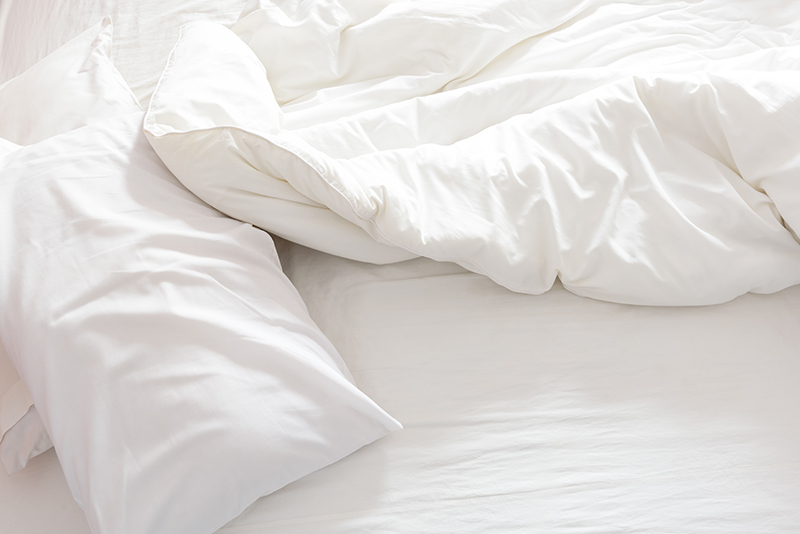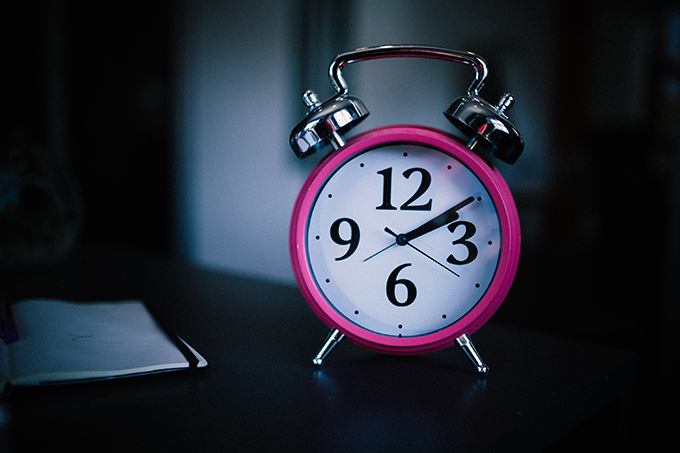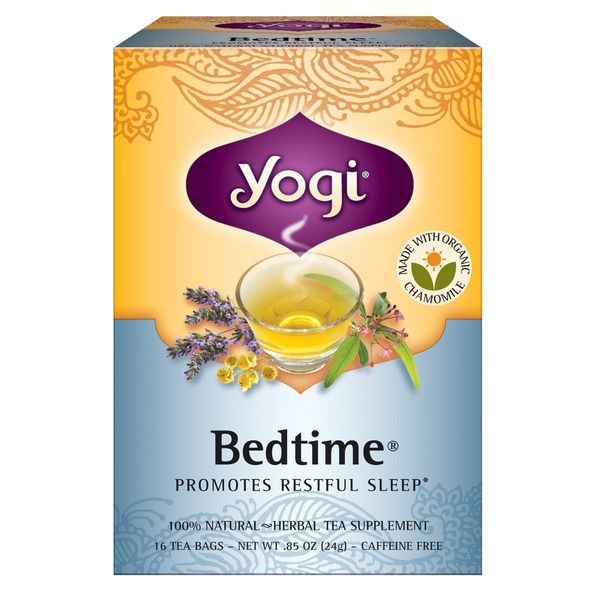Products and Practices to Optimize Sleep

Most everyone knows they should be getting more sleep, but knowing doesn’t necessarily translate into doing. Although you may feel perfectly fine on five or six hours of sleep, that doesn’t make it OK; it simply means you’ve trained your body to function in a sleep-deprived state!
Getting adequate sleep—a minimum of seven hours per night—is the most important habit you can build for your health. In fact, research suggests that less than seven hours can:
- Make you four times more likely to catch a cold.
- Stimulate your appetite and cause junk food cravings.
- Make it difficult to manage your blood sugar levels.
- Slow your metabolism and cause weight gain.
If you’re guilty of cheating on your relationship with sleep, here are six tips to help you rekindle your love affair with a peaceful night’s rest.

Tip #1: Turn off the lights
Light suppresses the production of melatonin, the hormone that controls your sleep and wake cycles. Turn off the lights and transform your bedroom into a quiet and dark oasis. This includes not exposing yourself to bright lights from television, e-readers and cell phones at least thirty minutes prior to getting into bed.
Tip #2: Turn down the heat
A cool bedroom is key to getting a good night’s sleep. The National Sleep Foundation recommends 65 degrees and says that sleep is actually disrupted when temperatures rise above 75 degrees or fall below 54 degrees.
Tip #3: Prioritize sleep like you do hygiene
You wouldn’t think of leaving the house without brushing your teeth, would you? It’s time to recommit to sleep by rearranging your schedule to get just thirty minutes more shut-eye each night. Then gradually bump it up in 30-minute intervals until you reach 7-8 hours. This may mean turning off the TV a little sooner or saving the laundry until tomorrow.
Tip #4: Be cautious of caffeine
A caffeine jolt in the late afternoon can seriously disrupt your sleep. Vow to avoid caffeinated beverages and foods after 3 pm. These include chocolate, coffee (including decaf), non-herbal teas, energy drinks and waters and soda.
Tip #5: Wind down your mind
Listen to soothing music, read a non-work related book, or meditate. You’ll be more likely to settle into a restful sleep if you do these activities at least 30 minutes before bed. Note: Blue light from computers and e-readers suppresses melatonin, which is especially bad for sleep. Choose only physical books to read before bed.
Tip #6: Consider natural sleep aids

Instead of reaching for sleeping pills—which can leave you feeling groggy the next day—try a natural sleep aid. Any one of the following can help you in your quest for more rest.
- Magnesium: Known as the “relaxation” mineral. Heinen’s Solutions: Heinen’s Magnesium; Garden of Life Dr. Formulated Relax & Restore Magnesium Powder
- Holy Basil: An herbal supplement that creates a sense of calm by lowering anxiety. Heinen’s Solutions: New Chapter Holy Basil Force; Ancient Apothecary Holy Basil; Himalaya Holy Basil
- L-Theanine: Clinical studies show the amino acid L-Theanine, to be successful at inducing a sense of calm in patients with anxiety. Heinen’s Solution: Heinen’s L-Theanine
- Sleep-Promoting Herbal Teas: Heinen’s Solutions: Traditional Medicinals Nighty Night Tea; Yogi Bedtime Tea
- Lavender: Smelling this calming herb can help you relax by slowing your heart rate, decreasing blood pressure and lowering skin temperature. Put a few drops in a diffuser and get ready to drift off into a blissful, deep sleep. Heinen’s Solution: Heinen’s lavender essential oil
For a better night’s sleep, choose one of the above tips and put it into action tonight! The ball is in your court, my friend. Or more appropriate… the ball is in your bed!
